When I was asked to write up something about the best performances in Kobe Bryant’s career to commemorate Mamba Day (8/24), I was both honored and anxious. Then I realized that DraftKings HQ is in Boston and I had a not-so-sneaky suspicion that no one else wanted to embark upon the journey.
I KID I KID!
I truly am honored that I was given the opportunity to write this piece because I was born and raised in Los Angeles, grew up a Lakers fan and experienced all the highs and lows of the Kobe Bryant experience. But I was anxious because I didn’t know how best to approach and structure the piece.
Did I want to focus on his unbelievable scoring prowess? The game-winners? Highlight-worthy dunks? Memorable final game? Displays of mental toughness? Performances that brought championships? There are so many games to choose from.
In the end, I chose what best exemplified the Mamba Mentality and, hopefully, pays the ultimate respect to Kobe Bryant.
It’s a random Tuesday, 25 games into the 2005-06 season. The Lakers are hosting the Dallas Mavericks, a team they just beat four games earlier in Dallas by the score of 109-106.
Kobe Bryant shoots 7-of-8 for 15 points in the first quarter and the Lakers are up by seven points. The second quarter is tight with the Lakers winning the quarter, 28-26. Kobe has 17 points.
Then Kobe goes absolutely nuclear in the third quarter, scoring 30 points on 7-of-13 shooting and going 14-of-16 from the line. For persepective, Klay Thompson’s 37 points in a quarter is the NBA record.
So, my handy dandy abacus tells me that Kobe is at 62 points after three quarters. Dallas as a team has 61 points. Unfortunately, he doesn’t play another minute because the Lakers are up by 34 points.
On this day in 2005, Kobe Bryant scored 62 points in just 3 quarters against the Mavs. #MambaMemory 🐍pic.twitter.com/ywWycY76mb
— ESPN Los Angeles (@ESPNLosAngeles) December 20, 2021
Arash Markazi of the LA Times reported that Brian Shaw asked Kobe if he wanted to keep playing and go for 70. Kobe responded, “I’ll do it when we really need it. I’ll get it when it really matters.”
Fast forward 16 games during that season.
It’s January 22, 2006. The Lakers just dropped a back-to-back in Sacramento and Phoenix. They are now hosting the Toronto Raptors with a record of 14-27 after getting a day off. EZ PZ, right? Not quite, as Toronto races out to a seven-point lead then go into halftime up 14 points. Kobe Bryant has 26 points on 10-of-18 shooting.
Then the third quarter starts and Chef Kobe starts making the wok dance. He goes 11-of-15 and scores 27 points while playing all 12 minutes. The Lakers turn the 14-point deficit into a six-point lead heading into the final period.
Kobe has 53 points.
Then he plays all but four seconds of the final quarter, shoots 7-of-13 from the field, 2-of-6 from downtown and 12-of-13 from the line for 28 points in the quarter and a whopping 81 points for the game.
Kobe’s final line is 28-of-46 from the field, 7-of-13 from downtown, 18-of-20 from the line, six rebounds, two assists, three steals, one block and three turnovers. The only blemish from this game was that his consecutive free-throw streak ended at 62. And it wouldn’t surprise me if that’s what stuck in Kobe’s mind and he went to the gym to practice free throws after the game.
In NBA history, only Wilt Chamberlain’s 100 points in 1962 was better.
That 2005-06 season had some epic Kobe games, but it’s the 2006-07 season that is forever etched in my memory. To this day, I still believe he got robbed of the MVP, but who am I but a Son?
Kobe had 26 career games with at least 50 points. 10 of those came during this season. There was a four-game stretch in March when he went for 65, 50, 60 and 50 points. All of those resulted in wins of 5, 7, 2 and 6 points. During those four games, he AVERAGED 19-of-35 field goals, shot 54% from the field, converted 51% of the 8.3 treys per game, drained 93% of the 15 free-throw attempts per game, grabbed 6.3 rebounds, dished out 2.8 assists, racked up 1.5 steals and turned the ball over twice a game.
Kobe led this team to a 42-40 record, second in the Pacific Division and made the playoffs. That doesn’t sound so impressive until you look at the roster. Lamar Odom was great. Outside of him, the Lakers roster consisted of Luke Walton, Smush Parker, Kwame Brown, Maurice Evans, Andrew Bynum, Vladimir Radmanovic, Brian Cook, Jordan Farmar, Ronny Turiaf, Aaron McKie, Sasha Vujacic and Shammond Williams.
But enough about the Kobe that has the fourth-most points in NBA history.
Let’s get to the Kobe that truly makes him a one of one.
It’s his 17th year in the league at the age of 34. Kobe has played in 1,091 games and 45,390 minutes. Up until this point, he missed 54 games due to a plethora of injuries, but only two that forced him to miss double-digit games. In the 1999-00 season, Kobe missed 15 games due to a fractured metacarpal. In the 2004-05 season, Kobe missed 14 games due to a sprained ankle.
Then it happened.
With three games left in the 2012-13 season, and after playing 45 minutes against the Golden State Warriors, Kobe tries to drive around Harrison Barnes at the left elbow and immediately crumbles to the ground. He grabs at his Achilles, but eventually gets up, limps to the free-throw line, drains both, then limps off the court. I will never forget the look on his face while he was shooting the free-throws. He looked the same as every other free-throw he took.
Many years later, when asked about how he could be so calm when others would be wilting in agony, Kobe responded with an analogy: Say you pull your hamstring. The doc says to stay home and rest. You’re at home when a fire breaks out. “Shits going down. I’m willing to bet that you’re going to forget about your hamstring and sprint upstairs, grab your kids, make sure the wife is good and get out of that house. Hamstring be damned. You’re not going to feel your hamstring because the lives of your family are most important than the injury. So when the game is more important than the injury itself, you don’t feel it.”
Kobe was on another level.
But, my favorite Kobe game was probably one of his worst.
During his rookie season, Kobe played 71 games but started only six, as that Lakers team was stacked with Nick Van Exel, Eddie Jones, Shaquille O’Neal, Elden Campbell and Robert Horry.
The Lakers faced the Utah Jazz in the playoffs, a well-oiled machine led by John Stockton and Karl Malone. They had the second-best record in the league, so it wasn’t surprising that they went up 3-1 in the series.
Game 5 was in Utah and the game was tight, with the Jazz entering the fourth quarter with a five-point lead. The Lakers eventually tied it up and, with 10 seconds left in the game and the score tied at 89, it was Kobe who brought the ball up the court. He dribbled to right elbow, pulled up and shot a fadeaway airball from around 13 feet.
In overtime, Nick Van Exel delivered the ball to a wide-open Kobe beyond the arc on the left side of the court, and he threw up another airball. With 45 seconds left in overtime, Kobe got the ball at the top way beyond the arc, dribbled left, brought the ball back through his legs then elevated for another trey. Air ball number three. With eight seconds left and the Lakers down by three points, Kobe received another pass on the left side of the court. Granted, he was a couple of feet deeper than the second air ball and there were two defenders in the vicinity, but the end result was another air ball.
Gross.
But two things stood out to me. Kobe never had bad body language and he continued shooting. Let’s remember that Kobe is only 18 years old, in his rookie season, in a hostile environment and in the playoffs for the first time.
Rather than sulk or lose confidence, he used it as motivation and broke down what went wrong, looking for ways to improve. “I gotta get stronger. I gotta train differently. I gotta tailor my weight training program for the 82-game season so that when the playoffs come around, my legs are stronger and the ball gets there.”
Some guys played for the money. Others for the fame. Kobe played for the love of the game, and that is why he was able to play through injuries and ascertain the heights that he did. He worked when others were sleeping and living. He was obsessed with hoops and pushed himself to be the best player he could be. Kobe realized that when you have a singular focus towards something, “The world becomes your library to help you improve your craft.”

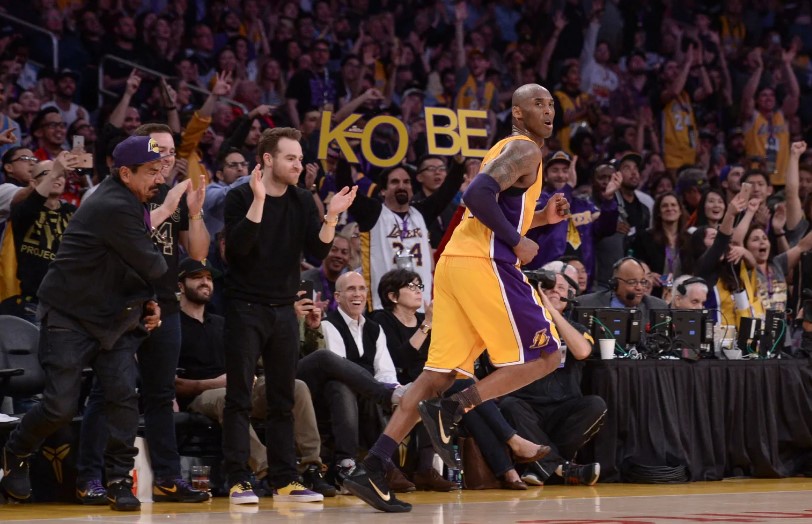
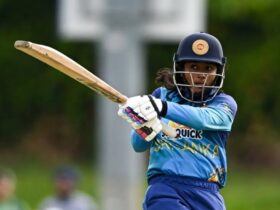

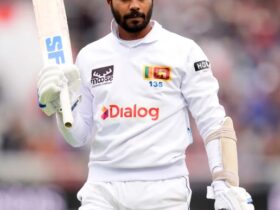

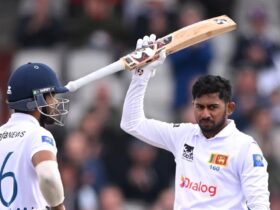
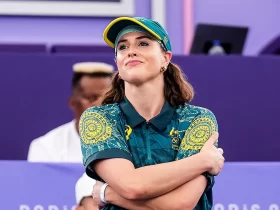
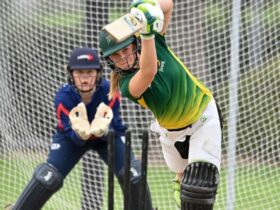
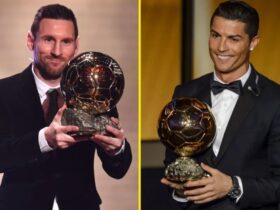
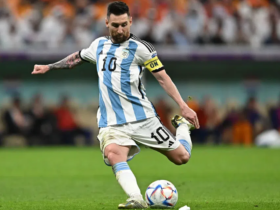
Leave a Reply